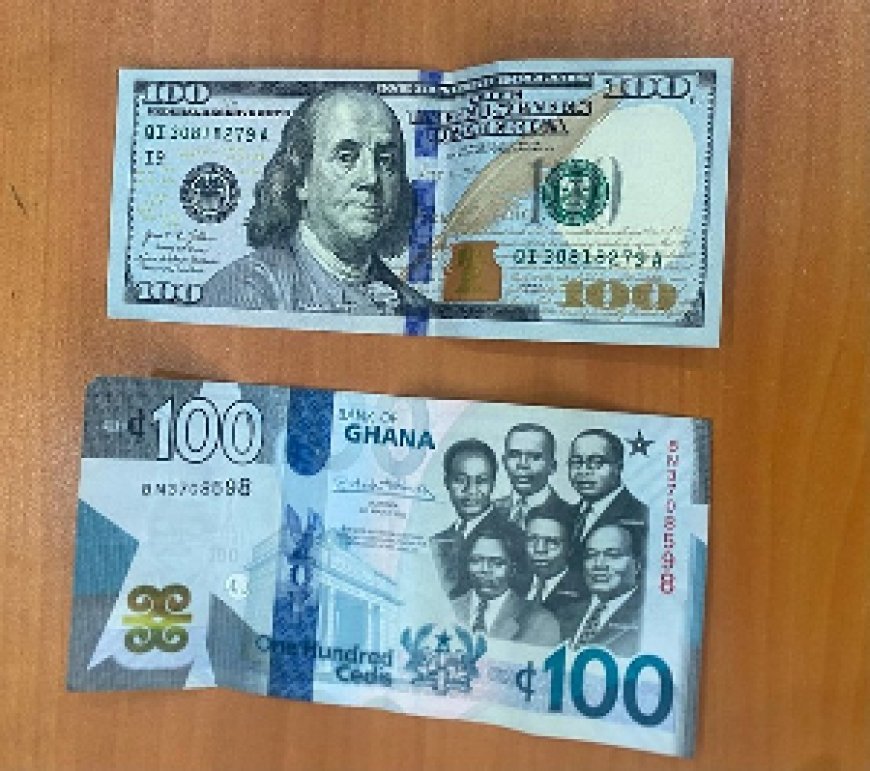Cedi Hits GH¢15.98 Against Dollar at Forex Bureaus After 2025 Budget Presentation
The Ghanaian cedi has depreciated further against the US dollar, hitting GH¢15.98 at forex bureaus across the country. This sharp decline comes in the aftermath of the 2025 budget presentation by Finance Minister Dr. Cassiel Ato Forson, sparking concerns among businesses and consumers about the impact on the economy.

The depreciation of the cedi follows the unveiling of the government’s fiscal policies and economic projections for the year. Analysts suggest that uncertainties surrounding the budget’s implementation, particularly in areas of revenue generation and expenditure, have contributed to the weakening of investor confidence, leading to increased demand for foreign currency.
Currency traders in Accra’s forex bureaus report a surge in dollar purchases as businesses and individuals scramble to hedge against further depreciation. “Many people are rushing to buy dollars because they fear the cedi will weaken even more in the coming weeks,” said a forex trader at Osu.
Causes of the Cedi’s Depreciation
Several factors have been attributed to the cedi’s decline, including:
-
Market Uncertainty: The 2025 budget outlined several tax reforms and expenditure cuts that have raised concerns among investors.
-
High Import Demand: Ghana’s reliance on imported goods continues to put pressure on the cedi as businesses demand more foreign currency to pay for imports.
-
Debt and Inflationary Pressures: Rising inflation and Ghana’s debt situation remain major factors influencing the currency market.
-
Speculative Trading: The uncertainty following the budget has led to speculative purchases of the dollar, further driving up its value against the cedi.
Impact on Businesses and Consumers
The rapid depreciation of the cedi has significant implications for businesses and consumers alike. Importers will face higher costs, which are likely to be passed on to consumers in the form of increased prices for goods and services. This could further exacerbate inflation, which remains a pressing economic challenge in the country.
Manufacturers relying on imported raw materials are also expected to see rising production costs, potentially leading to higher prices for locally produced goods. Additionally, individuals and businesses with dollar-denominated debts will experience increased repayment burdens.
Government's Response and Next Steps
In response to the cedi’s depreciation, the Bank of Ghana is expected to introduce measures to stabilize the currency, including injecting more dollars into the market and tightening monetary policies. The government has also assured the public that ongoing economic reforms will help restore confidence and curb the rapid depreciation.
Finance Minister Dr. Ato Forson, addressing concerns about the cedi’s performance, stated that the government is committed to implementing policies that will strengthen the local currency over time. “We understand the concerns of businesses and consumers, and we are working on strategies to ensure macroeconomic stability,” he said.
Looking Ahead
As the cedi continues to struggle against the dollar, economic analysts recommend that the government take decisive action to boost local production, reduce import dependency, and attract foreign investments. The coming weeks will be critical in determining whether the measures announced in the 2025 budget can help stabilize the currency and restore confidence in the Ghanaian economy.
Stay tuned for more updates on this developing story.
What's Your Reaction?





















































































